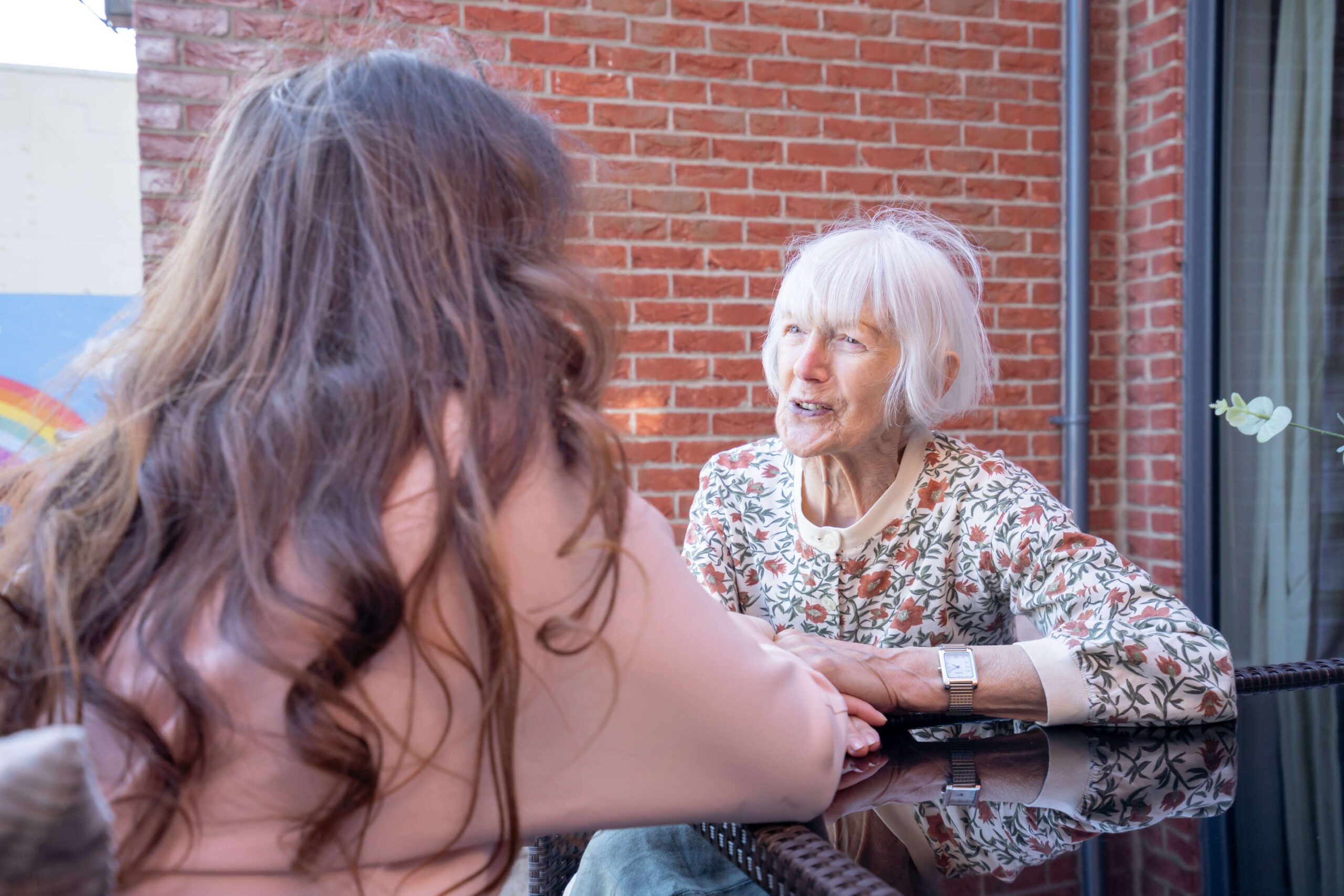Mrs C moved to Aranlaw House following the closure of her previous care home. She faced complex health issues, which had been the primary focus of her care before. Unfortunately, her dementia was not given the necessary attention, and it was merely considered a part of her general frailty. As a result, she did not receive any dementia-specific care.
Mrs C was doubly incontinent and could only walk a few steps with the help of two staff members. In her previous home, she was mostly confined to bed, as the staff believed that she preferred to sleep and was more comfortable that way. Due to this, she lost a significant amount of weight and had to be given dietary supplements to boost her calorie intake.
Mrs C was mostly nonverbal and spent long periods humming to herself or repeatedly singing the same line of a song. She would constantly pleat her skirt or run her hand over a table, as if wiping it clean. When approached by staff to offer assistance or bring her food and drinks, she would often seem startled and not notice them until they were right in front of her. While she could eat independently at times, she typically needed assistance from carers, and she did not seem to derive any pleasure from eating. Furthermore, she frequently declined to drink the dietary supplements prescribed to her.
We soon realised that many of Mrs C’s needs had been incorrectly attributed to her physical health problems. In reality, her difficulties with communication and perception indicated that she was in Stage 3 of dementia. At this stage, it’s crucial to provide stimuli that’s visible within the person’s reduced visual field, which may result from poor peripheral vision, loss of acuity, and colour perception. Additionally, the individual may have difficulty turning or raising their head to see in front of them or next to them. Social stimulation and activity at this stage are critical to prevent the person slipping prematurely into Stage 4.
Our staff learned to approach Mrs C more slowly, always from the front, and gently speak her name as they approached. When they got close, the staff crouched down to her level and used touch to confirm that they were there and focusing on her. Over time, Mrs C became less startled by our approach, and her eye contact with staff increased. We gave Mrs C a brightly coloured duster, and she would often pick it up and wipe the table as she had previously done with her hand. However, she now attempted to fold the duster up and put it tidily on the table. When staff thanked Mrs C for helping to clear up, she would smile in response.
We began offering Mrs C finger foods, and that’s when we discovered her love of pizza, cocktail sausages, and strawberries! Mrs C appeared to be much happier to eat when she could feed herself with foods she could easily pick up as she felt hungry. We also found that her favourite drink was a strawberry smoothie, which we added Complan and cream to in order to increase her calorie intake. Within her first month at Aranlaw, Mrs C gained 2 kilos in weight, and her enjoyment of food appeared to be returning.
After we played music that Mrs C recognised, she started to sing along, and we noticed that she was now much more alert than when she first arrived. Our Activity Coordinator worked with Mrs C’s daughter to gather a full life history and record significant events. This meant that we could all be aware of what was important to Mrs C and what she might enjoy reminiscing about or participating in. We discovered that Mrs C had been an excellent knitter; until about three years ago, she had knitted blankets for charity. Although Mrs C could no longer complete this task, we gave her some balls of wool of different textures and bright colours, and we were surprised by how much pleasure she derived from just moving the balls around on the table or stroking the wool against her face.
Mrs C appeared to be very content at Aranlaw, and over the next nine or ten months, her physical health problems decreased, and she gained weight while enjoying her meals. Mrs C’s daughter told us that she was able to enjoy visiting her mother for the first time in several years.
During the last six months of her life, Mrs C’s dementia advanced and she entered Stage 4 of the illness and received palliative care. In this stage, individuals often become withdrawn, with their eyes closed and making little movement or attempts at communication. Mrs C was no exception, and she spent much of her time in this state. However, there were still moments when her personality shone through, such as when she would laugh out loud at something and bring joy to everyone around her, even if they didn’t understand what had tickled her so much.
Even though Mrs C had become very withdrawn during the last stage of her illness, we wanted to make sure she didn’t miss out on the things she loved. Her daughter bought her a recliner chair and we would often wheel her into the lounge so she could be in her usual spot. She would still hold her balls of wool and hum along to her favourite songs. When we held her hand and tapped out the tunes together, she would enjoy it. Mrs C also loved having her hands massaged, which would make her whole body relax and she would even open her eyes and smile when we spoke to her during this treat.
Aranlaw was able to provide Mrs C with the care she needed until the end of her life, and she passed away peacefully with her daughter and other family members by her side. Mrs C’s daughter continues to pop in and see staff and residents at Aranlaw; she tells us that she enjoys the opportunity to reminisce about her mother with people who knew her for the wonderful person she was.





















